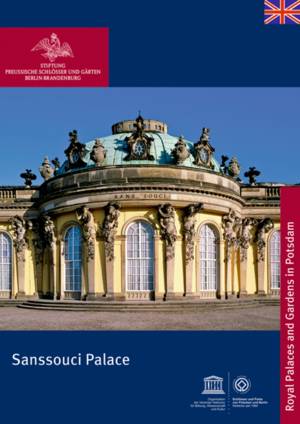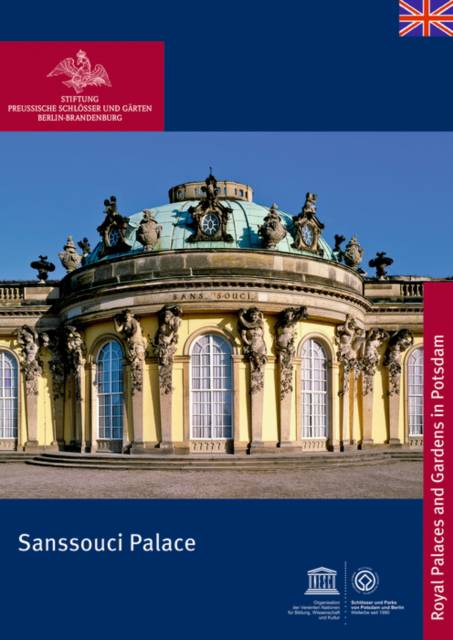
- Afhalen na 1 uur in een winkel met voorraad
- Gratis thuislevering in België vanaf € 30
- Ruim aanbod met 7 miljoen producten
- Afhalen na 1 uur in een winkel met voorraad
- Gratis thuislevering in België vanaf € 30
- Ruim aanbod met 7 miljoen producten
Zoeken
Omschrijving
Sanssouci Palace, which Frederick the Great had built to his personal specifications, is one of the most important 18th-century royal palaces. Architect Georg Wenzeslaus von Knobelsdorff finished the single-storey building in 1747 in only two years. Planned on the lines of a French pleasure castle, Sanssouci represents the pinnacle of Frederician Rococo. The statuary, the structure of the building itself and its site pay tribute to 'carefree leisure'. Beneath a striking dome is the famous oval Marble Hall, where Frederick the Great held his legendary round-table meetings with the intellectual elite of his day, sharing his many artistic and philosophical interests with guests such as Voltaire in an idyllic rural setting. Most of the 18th-century furnishings have survived to provide an authentic view of this place of cultural meetings, on which in large part rests the reputation of Frederick the Great as a monarch of the Enlightenment and major patron of the arts.
Specificaties
Betrokkenen
- Auteur(s):
- Vertaler(s):
- Uitgeverij:
Inhoud
- Aantal bladzijden:
- 48
- Taal:
- Engels
- Reeks:
Eigenschappen
- Productcode (EAN):
- 9783422040366
- Verschijningsdatum:
- 14/12/2015
- Uitvoering:
- Paperback
- Afmetingen:
- 120 mm x 3 mm
- Gewicht:
- 75 g

Alleen bij Standaard Boekhandel
+ 15 punten op je klantenkaart van Standaard Boekhandel
Beoordelingen
We publiceren alleen reviews die voldoen aan de voorwaarden voor reviews. Bekijk onze voorwaarden voor reviews.








